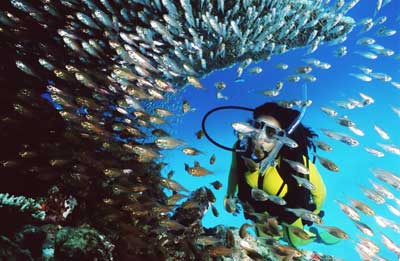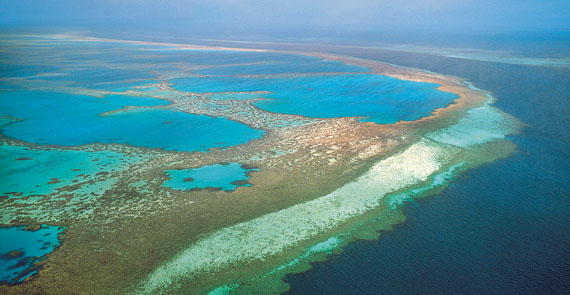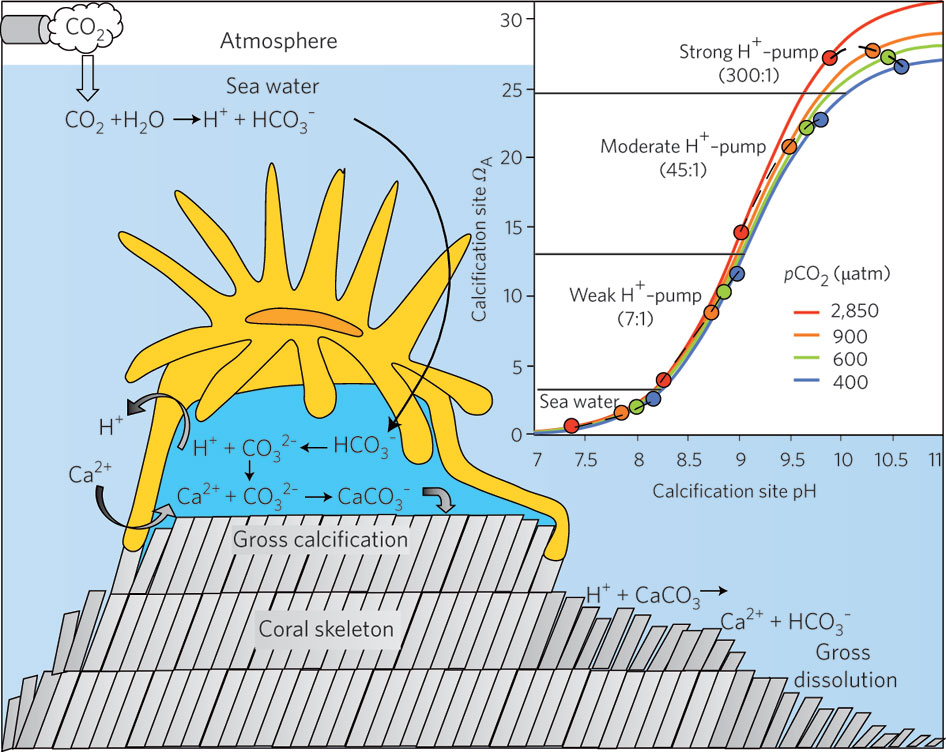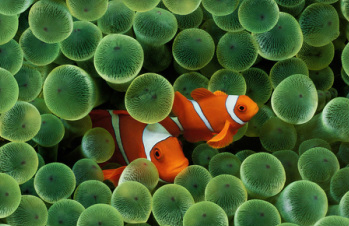The Importance of the Coral reef
Coral reefs are very productive ecosystems. Not only do they support an enormous biodiversity, they are also of great value to mankind.
|
1. Fisheries
- Coral reefs are homes to millions of fish, and because of that, people use coral reefs as a way to capture fish for food and for selling. An estimated 1 billion people depend on coral reefs as a food source and for the income from fishing. If the reefs are kept healthy, for example, if people did not pollute the waters, then coral reef fish populations could prosper, yielding around 15 tonnes of fish and other seafood per square kilometer each year. |
|
2. Tourism
- People come from all over the world to admire the different species, sizes, colors, and shapes of coral reefs. For example, according to a report by the Key West chamber of commerce, tourists visiting the Florida Keys in the US make at least US$3 billion dollars in annual income, while Australia’s Great Barrier Reef generates well over US$1 billion per year. Therefore, those living in poverty, who live along the coasts, can benefit from the coral reefs by starting up their own companies for tourism and to show others the beauty of coral reefs. |
|
3. Coastal protection
- Coral reefs break the power of the waves during storms, hurricanes, typhoons, and even tsunamis. By helping to prevent coastal erosion, flooding, and loss of property on the shore, the reefs save billions of dollars each year in terms of reduced insurance, reconstruction costs, and reduced need to build costly coastal defenses; not to mention the reduced human cost of destruction and displacement. |
|
4. Source of medical advances
- It’s been said and known that coral reef species will help contribute to future medical advances. Coral reef organisms are already being used in treatments for diseases like HIV and Cancer. Like tropical forests, we can continue to find answers to medical problems in the coral reefs, as long as we take good care of them and keep them healthy. |







